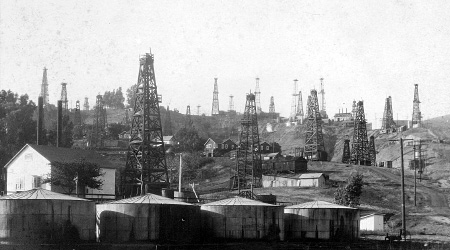How Does Oil Futures Trading Work?

Many investors trade not in oil today, but in oil futures. Investors can make a great deal of money by predicting the cost of oil months, or even years, in advance. For many people, oil futures trading is a mystical process. If you're curious about trading oil futures, consider this crash course in the basics.
What are oil futures?
At the most basic level, oil futures are instruments whereby investors agree to purchase a specific number of units of oil at a specific price on a specific day. Oil futures trading works on a standardized instrument, which can be traded right up until the last trading day specified in the instrument. Investors often buy oil futures on margin, meaning that they don't pay the entire price up front; they typically pay anywhere from two to ten percent of the price of the contract.
Oil futures trading is based on the predicted cost of oil months or years from now. When people trade oil futures, they aren't trading based on the cost of oil today; they're trading oil futures based on expectations of oil prices months, or even years in the future. Most oil futures traders predict that the price of oil is going to rise in the future, so if they buy oil futures at a low current rate, they'll have turned a profit when the price of oil actually does rise in the future. However, if they're wrong and the price of oil drops, oil futures traders would lose money. Traditionally, though, oil futures trading has been profitable because the price of oil generally goes up; the question is typically how much.
You don't have to keep oil futures until the delivery date to make money.
Oil futures aren't restricted to a single investor; they're instruments that can be traded on the open market. If you buy oil futures at a specific price, and the price of oil rises, making those futures more attractive to other investors, you could sell your futures at a profit immediately, instead of waiting until the delivery date of the contract and disposing of the commodities. Many oil futures traders buy oil predicting an upward trend in price, and trade the futures as soon as the value goes up.
Trading oil futures can cost you money.
Some investors make oil futures trading seem like an easy way to make money, but that's not really the whole picture. Trading oil futures carries risk. If you trade oil futures thinking that oil is going to trade at $200 a barrel a year from now, and the price of oil drops, you're still stuck with the $200 per barrel price. You'd lose money if the market declines, and you'd virtually have to pay somebody to take the instrument off your hands.
Elsewhere on StockMonkeys.com







